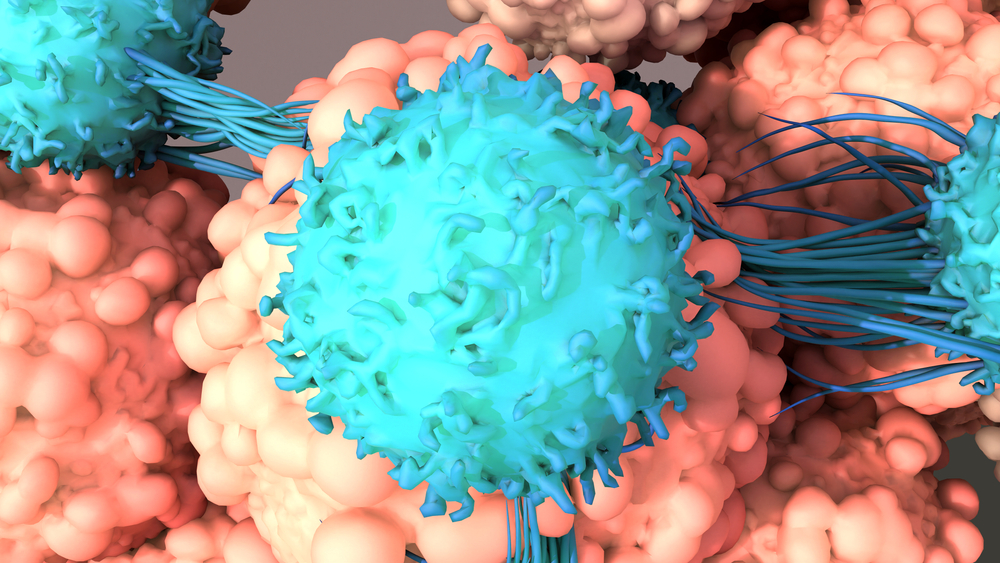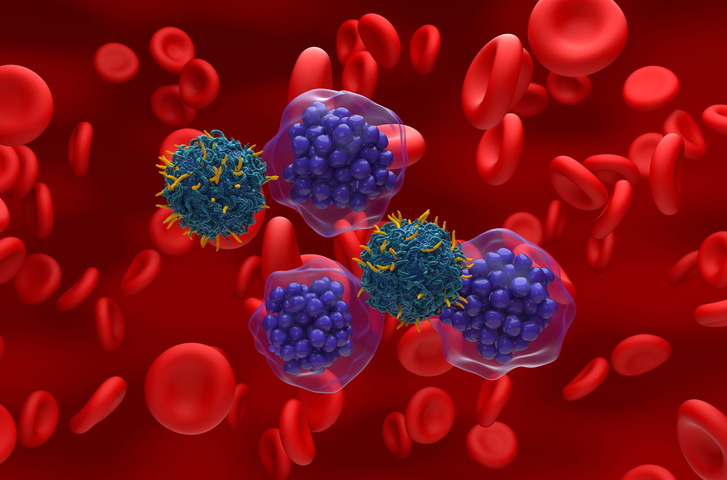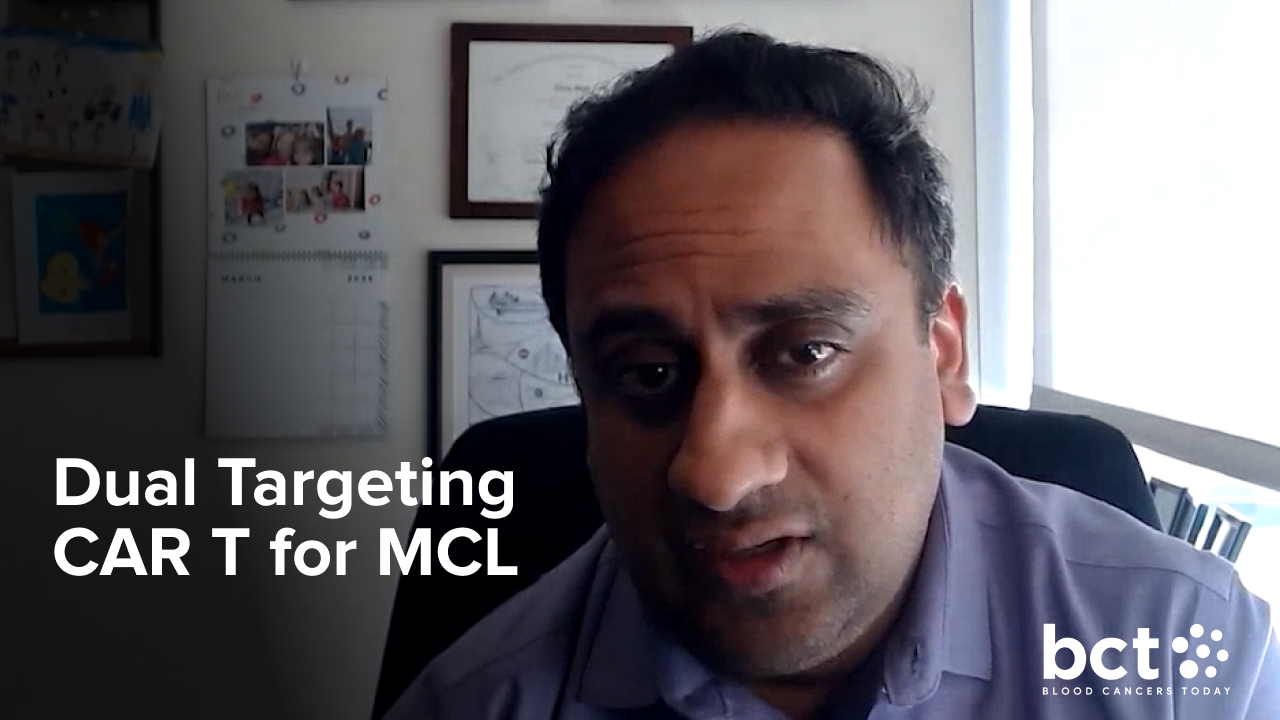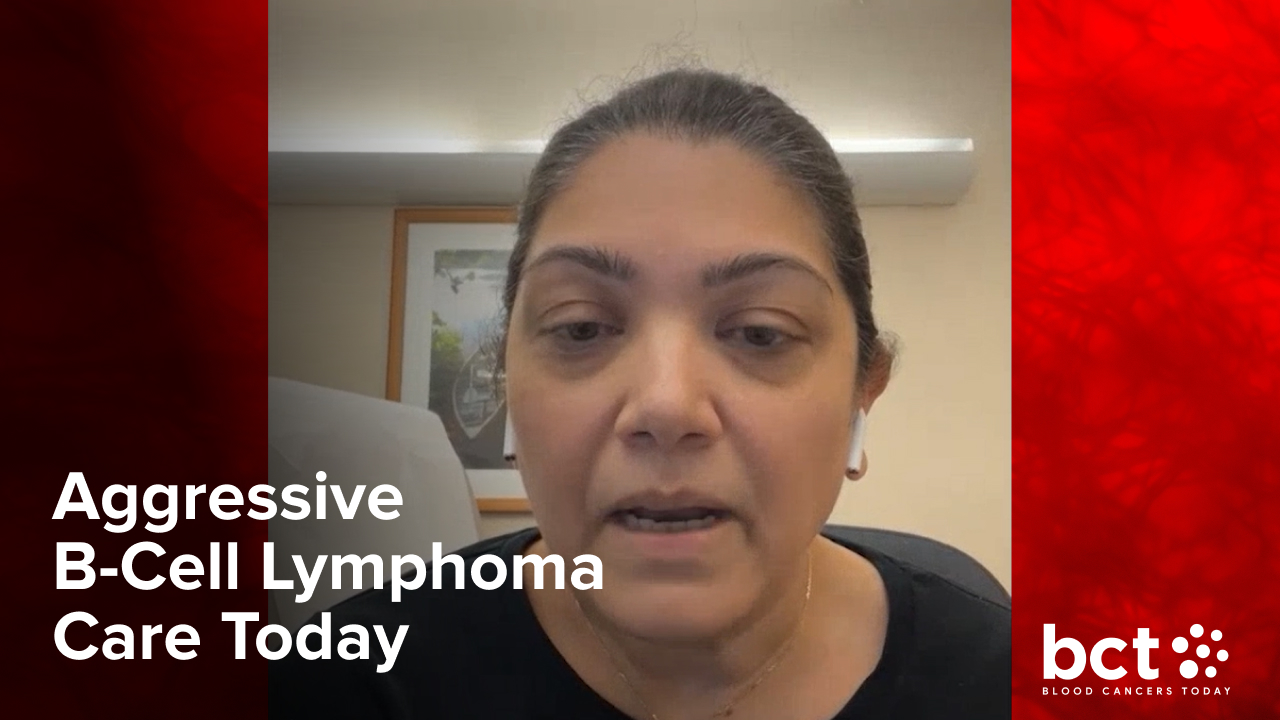
Certain genetic features in tumor and plasma samples from patients with large B-cell lymphoma are associated with poor CD19-directed chimeric antigen receptor (CAR) T-cell treatment outcomes, according to two recent studies.
It’s important to identify features that may predict responses because some patients with relapsed or refractory large B-cell lymphomas “achieve long-term remission” after receiving CD19-directed CAR-T, yet treatment failure occurs in more than half of the patients, Hua-Jay J. Cherng, MD, of the MD Anderson Cancer Center, and colleagues wrote in a Blood publication.
“Thus, approaches are needed to identify high-risk patients who may benefit from alternative or consolidative therapy,” Dr. Cherng and colleagues said.
Furthermore, the tumor-intrinsic alterations underlying relationships between host inflammatory and tumor microenvironment markers and CD19-directed CAR-T outcomes “remain undefined,” Michael Jain, MD, PhD, of the H. Lee Moffitt Cancer Center and Research Institute, and colleagues wrote in their Blood publication.
“CD19 mutations associate with resistance, but are uncommon, and most patients with relapsed disease retain expression of the wild-type receptor, implicating other genomic mechanisms,” Dr. Jain and colleagues said.
Using Whole-Genome Sequencing of Tumor Samples to Predict CD19-Directed CAR-T Outcomes
Dr. Jain and colleagues performed whole-genome sequencing on 51 tumor samples from 49 patients with large B-cell lymphoma before they received CD19-directed CAR T-cell therapy.
Complex structural variants, APOBEC mutational signatures, and genomic damage from reactive oxygen species before treatment predicted resistance to CD19-directed CAR T-cells. The recurrent 3p21.31 chromosomal deletion containing the RHOA tumor suppressor was “strongly enriched” in patients who had CAR-T treatment failure, according to Dr. Jain and colleagues.
However, reduced expression of CD19 or monoallelic loss of CD19 before treatment did not impact patient responses to CD19-directed CAR-T therapy, “suggesting [CD19-directed CAR-T therapy] success and resistance are related to multiple mechanisms,” the researchers wrote.
“Our study showed that tumor-intrinsic genomic alterations are key among the complex interplay of factors that underlie [CD19-directed CAR-T] efficacy and resistance for large B-cell lymphomas,” Dr. Jain and colleagues concluded.
Using DNA Copy Number Alteration Data From Cell-Free DNA to Predict CD19-Directed CAR-T Outcomes
Dr. Cherng and colleagues used low-pass whole-genome sequencing of cell-free DNA to define DNA copy number alterations in plasma samples collected before patients underwent CD19-directed CAR-T therapy. They collected samples from 122 patients with relapsed or refractory large B-cell lymphomas when the patients underwent leukapheresis.
A high focal DNA copy number alteration score denoting genomic instability was associated with a significantly reduced three-month complete response rate (28%) compared with lower focal DNA copy number alteration scores (56%; P=.0029). Higher focal DNA copy number alteration scores were also associated with significantly reduced progression-free survival (hazard ratio [HR], 2.11; P=.0007) and overall survival (HR, 2.10; P=.0026).
The researchers identified 34 unique focal DNA copy number alterations in 108 patients, representing 89% of the study population. They found the deletion 10q23.3 leading to loss of the FAS death receptor was the “most highly associated with poor outcomes,” Dr. Cherng and colleagues wrote.
They devised a simple risk model “to reliably risk stratify patients” by combining focal DNA copy number alteration data with data on lactate dehydrogenase and extranodal sites, as elevated lactate dehydrogenase and having more than one extranodal site are “traditional markers of increased tumor bulk,” according to the authors.
“Thus, [low-pass whole-genome sequencing] of [cell-free] DNA is a minimally invasive assay that could rapidly identify high-risk patients and may guide patient selection for and targeted therapies to evaluate in future clinical trials,” Dr. Cherng and colleagues concluded.
References
Cherng HJJ, Sun R, Sugg B, et al. Risk assessment with low-pass whole-genome sequencing of cell-free DNA before CD19 CAR T-cell therapy for large B-cell lymphoma. Blood. 2022;140(5):504-515. Doi:10.1182/blood.2022015601
Jain MD, Ziccheddu B, Coughlin CA, et al. Whole-genome sequencing reveals complex genomic features underlying anti-CD19 CAR T-cell treatment failures in lymphoma. Blood. 2022;140(5):491-503. doi:10.1182/blood.2021015008






 © 2025 Mashup Media, LLC, a Formedics Property. All Rights Reserved.
© 2025 Mashup Media, LLC, a Formedics Property. All Rights Reserved.